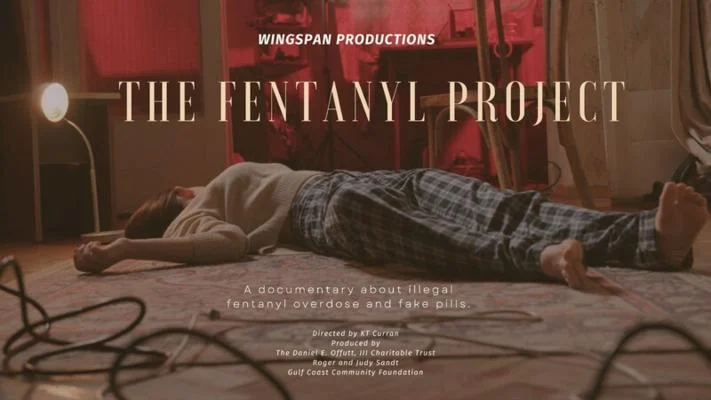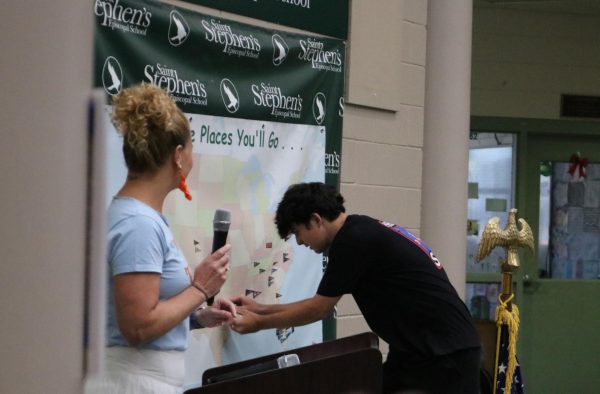Don’t get burnt out
Have you ever felt like all your motivation has escaped you? You might have been facing the beginning stages of a disease known as burn out.
October 5, 2021
In 2019 the World Health Organization added to its International Classification of Diseases. The name of the condition it recognized? Burnout.
The World Health Organization was talking about workplace conditions, but we high school students know very well that it applies to us too. Just listen to WHO’s description of what burnout can manifest itself as in our psyches: “feelings of energy depletion or exhaustion; increased mental distance from one’s job, or feelings of negativism or cynicism related to one’s job; and reduced professional efficacy.”
If that sounds familiar, you are in good company. In a study that focused on students in private high schools, New York University researchers found that “49% of the students reported feeling a great deal of stress every day, and 31% described themselves as somewhat stressed on a daily basis.”
There’s a difference between stress and burn-out, though. In a way, burn-out is stress’ more formidable older sibling. It’s sort of like an accumulation of stress, to the point where any positive byproducts of stress (like productivity) go out the window.
When burn-out strikes, progress halts. Instead of being able to work through the pressures you’re facing, all of a sudden, those pressures become insurmountable. As senior Caroline Pope said: “Sometimes I feel so overworked that I just can’t do any work at all. It’s almost like any motivation I had to get things done disappears.”
That is a struggle I know all too well. Recently, no matter how much work I know I have to do, I can’t seem to be able to force myself to get it done until the last possible second (if at all). It hasn’t always been like that for me.
When I think back on freshman year, one time that always stands out to me is midterms week. It’s not so much because the exams were particularly hard or I did poorly on them, but because of the sheer amount of time and effort that I put into preparing for them. I remember spending a minimum of four hours studying. Everyday. For two weeks.
Even though my classes are much harder now, I genuinely cannot even fathom studying that much for midterms. It isn’t that I don’t want to, but it almost feels like I just can’t. Somewhere along the way, I got so stressed out about school that my stress morphed into apathy.
According to a study by researchers at Winona State University, what I’m feeling right now is stage three of the five stages of burnout: chronic stress.
Five stages of burnout? Maybe you’ve heard of the five stages of grief, but what about burnout? Check out the sidebar to learn more about these stages so that when (not if) we encounter them, we’ll be ready.
I think it’s safe to say that all of us have experienced the honeymoon phase, and I would even wager to bet that most of us have spent some time in the balancing act stage.
I don’t think that’s the end of the world.
Stress can lead to things that aren’t good, but it in and of itself doesn’t have to be all bad. It can be a catalyst for positive change at best, but even in stage two of burnout, it’s liveable.
Something that bothers me, though, is the notion that it’s fairly common for people as young as high school age to be inching towards full blown burnout. For someone who has been doing one job for twenty years, burnout to some degree is fairly inevitable. For seventeen year olds? That seems premature to me.
What sort of climate pushes us so far that we begin to lose our motivation before we even reach adulthood?
High school is tough, but maybe it doesn’t have to be as tough as some of us tend to make it. Maybe we don’t have to go one hundred percent, one hundred percent of the time. I’m not saying you should just slack off, but you don’t have to push yourself so hard that you lose all your motivation. That’s what I did, and now I’m fighting an uphill battle. Every time I open ssesonline and look at my assignment list, I feel like I need to take a break before I even get started on my work. It doesn’t have to be like that.
Before you reach too high a level on the burnout scale, take a few steps back. Don’t wait until it’s too late. An article by Vet X International provides some helpful suggestions, and though they may be tailored to veterinarians facing burnout, I think they are applicable across the board.
One of these tips is to engage with the community around you. As the Beatles so famously put it, “I get by with a little help from my friends.” When things get tough, it’s often helpful to gain validation for your feelings by talking them through with your peers. More often than not, you’ll find that they understand exactly what’s going on in your head.
You can also try to combat burnout before it truly sets in by finding an outlet for your stress. For some, that outlet may come in the form of art or music or journaling. For others, it could be running or even something as simple as screaming into their pillow.
Whatever the case, it’s important to identify symptoms of burnout and target them before things progress too far. Your future self will thank you.


























































